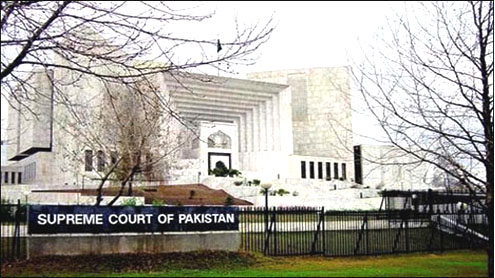 Rebel leaders won recognition as the legitimate government of Libya from the US and other world powers in a major boost to the rebels’ faltering campaign to oust Gaddafi. Western nations said they also planned to increase the military pressure on Gaddafi’s forces to press him to give up power after 41 years at the head of the North African state. Recognition of the rebels, announced by Secretary of State Hillary Clinton at a meeting in Turkey of the international contact group on Libya, is an important diplomatic step which could unlock billions of dollars in frozen Libyan funds. The decision comes as reports are circulating Gaddafi has sent out emissaries seeking a negotiated end to the conflict, although he remains defiant in his public utterance.
Rebel leaders won recognition as the legitimate government of Libya from the US and other world powers in a major boost to the rebels’ faltering campaign to oust Gaddafi. Western nations said they also planned to increase the military pressure on Gaddafi’s forces to press him to give up power after 41 years at the head of the North African state. Recognition of the rebels, announced by Secretary of State Hillary Clinton at a meeting in Turkey of the international contact group on Libya, is an important diplomatic step which could unlock billions of dollars in frozen Libyan funds. The decision comes as reports are circulating Gaddafi has sent out emissaries seeking a negotiated end to the conflict, although he remains defiant in his public utterance.
In a speech broadcast as thousands of loyalists rallied in a street demonstration, Gaddafi rejected international recognition of the rebels. “Trample on those recognitions, trample on them under your feet,” he told his supporters. “They are worthless.” He said he enjoyed the support of millions of Libyans who yearned for death, martyrdom and suicide. The Istanbul conference attended by more than 30 countries and international bodies also agreed a road map whereby Gaddafi should relinquish power and plans for Libya’s transition to democracy under the rebel National Transitional Council (TNC). “Until an interim authority is in place, the United States will recognize the TNC as the legitimate governing authority for Libya, and we will deal with it on that basis,” Clinton said.
The decision to recognise the rebels, who have been waging a five-month military campaign against Gaddafi, meant the Libyan leader had no option but to stand down, Italian Foreign Minister Franco Frattini said. The contact group statement added: “The formation of an interim government should be quickly followed by the convening of a National Congress with representatives from all parts of Libya.” The UN Secretary-General’s special envoy to Libya, Abdul Elah Al Khatib, will be authorised to present terms for Gaddafi to leave power, but the British foreign minister said military action against Gaddafi would be stepped up at the same time. The political package to be offered Gaddafi will include a ceasefire to halt fighting in the five-month-old war.
A rebel spokesman in Istanbul said he did not expect a ceasefire until Gaddafi had been defeated and rejected suggestions of a pause in the fighting during the Muslim holy month of Ramadan, which begins at the start of August. In the rebels’ stronghold of Misrata, the head of the local council Khalefa Zawawi said: “What happened today at the conference in Turkey was a boost for the National Transitional Council.”
Military pressure
British Foreign Secretary William Hague told Reuters that at the same time as al-Khatib pursues a political settlement, “the military pressure on the regime will continue to intensify.” The Libya contact group, established in London in March, is trying, at its fourth meeting, to find a political solution that would persuade Gaddafi to quit. China and Russia, which have taken a softer line towards Gaddafi, were invited to the contact group meeting for the first time, but decided not to become involved. Turkish Foreign Minister Ahmet Davutoglu said he hoped a political solution could emerge by the start of Ramadan. He backed a rebel proposal for the release of $3 billion of frozen Libyan assets to alleviate a “grave” humanitarian situation during Ramadan in areas of Libya controlled by the rebels and by Gaddafi. “We have agreed to lead a humanitarian aid campaign to transfer aid to all Libyan cities. We want the suffering of the Libyan people to end and to form the necessary humanitarian corridors,” Davutoglu said.
U.S. officials said the decision to extend formal diplomatic recognition marked an important step toward unblocking more than $34 billion in Libyan assets in the United States but cautioned it could still take time to get cash flowing. Speaking in The Hague on Thursday, NATO chief Anders Fogh Rasmussen called on alliance members to provide more warplanes to bomb increasingly elusive Libyan military targets. Britain said it was sending four more Tornado reconnaissance planes to beef up the NATO mission. Such aircraft have become vital as Gaddafi’s forces have hidden their armour and artillery from NATO warplanes. Britain said its warplanes had on Thursday destroyed a Libyan army armoured personnel carrier near Zlitan, west of the rebel stronghold of Misrata. British aircraft had so far damaged or destroyed more than 500 Libyan military targets including command and control sites.
“But as the campaign has progressed, the regime is increasingly attempting to conceal troops, equipment and headquarters, often in populated areas,” a British military spokesman, General Nick Pope, said. On the ground, rebel fighters have been unable to make much progress against pro-Gaddafi forces of late. On the front line near the rebel stronghold of Misrata in the west, rebel fighters were digging in against mortar fire from pro-Gaddafi forces, sheltering in large concrete water pipes brought up by bulldozer to serve as makeshift protection. One fighter, who gave his name as Bashir, said: “Whenever we have ammunition, we move forward. But now we are not moving.” – khaleejtimes












